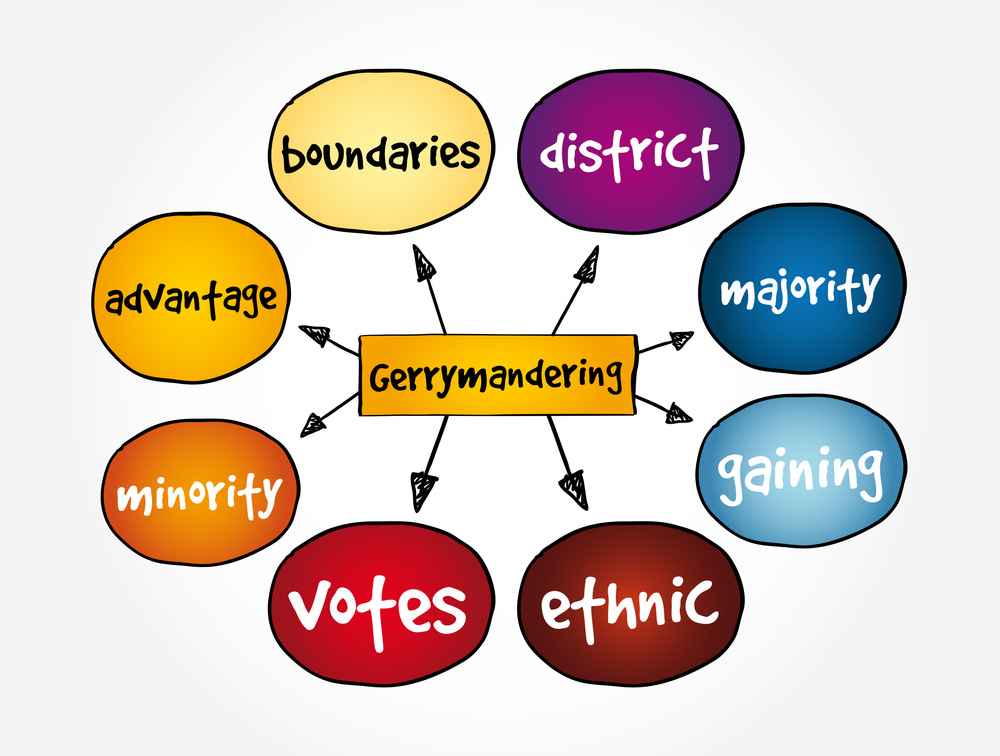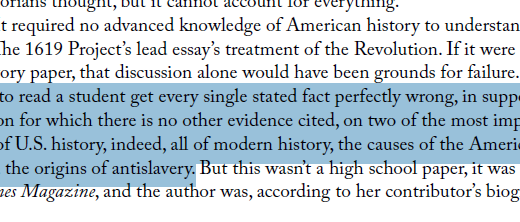E-Pluribus | September 16, 2021
Is racial gerrymandering on the outs, rules are rules for a reason, and Joe Biden's vaccine mandate and what it says about the modern day presidency.
A round up of the latest and best writing and musings on the rise of illiberalism in the public discourse:
Jason L. Riley: Is Racial Gerrymandering Going Out of Style?
Achieving a colorblind society when congressional districts are explicitly drawn along racial lines has long been a dubious proposition. Jason Riley reports in the Wall Street Journal that there are signs that at least some state lawmakers’ support of electoral separate-but-equal districts may be weakening.
When it comes to drawing political maps for congressional seats, Republicans have been happy to create these “majority minority” districts because that made it easier for Republican candidates to win elsewhere. The downside of creating “safe” black districts, however, is that they give candidates little incentive to form multiracial coalitions that appeal to nonblacks or to anyone other than base voters. The result is more racial division and hyperpartisanship. Members of the Congressional Black Caucus typically have voting records that are more liberal than both black voters and even white Democrats.
The Journal reported last week that some on the left may be rethinking this tradeoff as 2022 redistricting gets underway using the latest Census data. “Black leaders are approaching this process with a different mindset than a decade ago, with more arguing that Black political representation no longer rests on a need to pack Black voters into highly concentrated districts,” the paper wrote. “The shift could help Democrats push for maps that make the party more competitive in some states by distributing Black voters—the party’s most supportive voting block—across more House districts.”
[…]
If some liberals are coming around to the view that you don’t need majority black districts to elect black officials, it’s a welcome development that’s long overdue. Still, it doesn’t square with their endless chatter about “systemic racism” in America, which we’re told is not only endemic but ascendant. In the 1980s, a majority white district in Missouri was represented by a black Democrat. In the 1990s, a black Republican from Connecticut represented a district that was nearly 90% white. More recently, Democrat Keith Ellison of Minnesota and Republican Mia Love of Utah, two black former members of Congress, represented districts that were mostly white.
Read it all.
Jonah Goldberg: Rules Matter. For Everyone.
“We didn’t make the new rules” has become a common refrain among those who have discarded previously held beliefs and principles in the name of “fighting fire with fire” or “winning.” But Jonah Goldberg argues at The Dispatch that rules are (usually) rules for a reason, even rules that may at first glance to be arbitrary. Goldberg cautions that none of us should be above the rules, regardless of whatever good intentions we may claim to be acting on behalf of.
None of this is to say that just because a rule exists it is therefore right or good. People often make bad rules. And lots of good rules lose their usefulness or legitimacy. But as with Chesterton’s fence, it’s best to know why the rule exists before you propose getting rid of it.
And often, if you test a theory about why a rule should be repealed or ignored, you’ll be rewarded with the same science of discovery that introduced the rule in the first place. For instance, let’s say some city council buys the poltroonish theory that the only reason we have police is because police were fugitive slave patrollers and abolishes them. You’ll soon learn that we have police for lots of reasons that have nothing to do with chasing escaped slaves.
[…]
Let me be clear: My point isn’t about hypocrisy. The hypocrisy is bad, but it’s only smoke generated by a far more dangerous fire. People are putting torches to the rules, but all they know how to do is complain about the other teams’ smoke.
Again, I think the Constitution is a storehouse of a lot of wisdom. But there’s plenty of stuff in there that is—for our purposes—arbitrary. Election Day doesn’t have to be the Tuesday after the first Monday in November, but there does need to be an Election Day. (Though, alas, we now define Election Day not as the day we all vote, but as the last day you can vote.) History would have likely played out the same way if each state had three senators instead of two. But there is utility all the same in sticking to those rules once they’re agreed upon.
If you want to change these rules or any others, fine. If you don’t like guns and the right to keep and bear them, then amend the Constitution. Have a debate. Follow the rules.
But when you embrace the idea that rules are important for constraining your opponents but trivialities to be circumvented or rolled over otherwise—the way Biden wants to rollover governors in the way of his proposed vaccine mandate—you’re telling your opponents to adopt the very same tactic.
Read the whole thing.
J.D. Tuccille: Biden's Vaccine Mandate Is the Latest Sign of the Presidency Becoming a Monarchy
Some have argued that our Constitution already skews towards an imperial presidency, but the pragmatism of voters who seem to be content to see their ends achieved with less regard for the means are exacerbating the situation. J.D. Tuccille writes at Reason that Joe Biden is simply continuing down the trail blazed by his predecessors with his vaccine fiat aimed at private employers.
"The constitutional presidency, as the Framers conceived it, was designed to stand against the popular will as often as not, with the president wielding the veto power to restrain Congress when it transgressed its constitutional bounds," wrote Healy in his 2008 book. "In contrast, the modern president considers himself the tribune of the people, promising transformative action and demanding the power to carry it out."
Claiming to act in response to popular demand is how a president who, last year, told supporters "Executive authority that my progressive friends talk about is way beyond the bounds" can pivot months later to issuing vaccine mandates for private-sector workers—and be applauded for the move by supporters who would be horrified if an elective monarch they didn't like exercised such authority.
"This is the correct policy. And you know you can't get it through Congress… so what is the problem?" one commenter responded to Amash's warning about executive overreach.
But presidents enthusiastic about power don't come in only one partisan flavor.
"I have an Article 2, where I have the right to do whatever I want as President," then-President Donald Trump told an enthusiastic conservative gathering in 2019. The same year he "ordered" U.S. companies to stop doing business in China before backing off amid pushback from even his allies.
Unsurprisingly, Trump was accused of acting like a monarch, just as his predecessor, President Barack Obama, was charged with kingly pretensions, and so was President George W. Bush before him. And the accusations were spot on—they all acted unilaterally and built on the precedents of those who went before them.
Read it all here.
Around Twitter
Amazon has reportedly spiked a Heritage Foundation ad for a new book on the Black Lives Matter movement:
Via Wesley Yang, more evidence that scholars continue to cover for the New York Times’ 1619 Project out of fear:
A Robby Soave comment and a Jesse Singal thread on a New York Times essay asserting that Elizabeth Holmes was a victim of sexism:
And finally, “There’s the door.” (!)
















